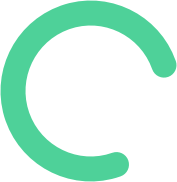In today's digitised world, coding has emerged as a vital skill that opens up countless opportunities for individuals. Whether you aspire to create websites, develop software applications, or even pursue a career in data analysis, learning to code can be your ticket to success. This article will guide you through how to become a coder in the UK, exploring the role of a coder, the essential coding qualifications, the process of choosing the right coding language, gaining practical experience, and the importance of building a coding portfolio.
Understanding the Role of a Coder
Before delving into the specifics, it is crucial to grasp the responsibilities that come with being a coder. Coders are professionals who use programming languages to write, debug, and maintain computer code. They are the creative minds behind the software applications, websites, and algorithms that we interact with on a daily basis. As a coder, you will be responsible for understanding and implementing complex instructions and translating them into functional code. The ability to think logically, problem-solve, and pay meticulous attention to detail are essential traits for success in this role.
Let's explore the fascinating world of coding in more detail. Coders are like architects, designing the digital infrastructure that powers our modern society. Just like an architect plans and constructs buildings, coders plan and construct the virtual structures that shape our digital experiences. They are the unsung heroes behind the scenes, working tirelessly to ensure that everything runs smoothly in the digital realm.
Imagine a world without coders. Websites would be static and lifeless, devoid of interactivity and functionality. Software applications would be non-existent, leaving us without the tools and conveniences we rely on daily. Algorithms, the mathematical instructions that power search engines and recommendation systems, would be mere concepts, unable to bring us the tailored experiences we have grown accustomed to.
Key responsibilities of becoming a coder
As a coder, your primary responsibilities will include:
- Developing and writing efficient, clean, and maintainable code.
- Debugging and testing code to identify and fix errors.
- Collaborating with cross-functional teams to design and implement software solutions.
- Updating and refining existing code to improve functionality and performance.
- Staying up to date with industry trends and best practices to ensure code quality.
Let's dive deeper into these responsibilities. Developing and writing efficient code is like crafting a masterpiece. Just as an artist carefully selects their brushstrokes, a coder meticulously chooses each line of code to ensure optimal performance and functionality. Debugging and testing code is like being a detective, searching for clues to solve the mystery of a bug. Collaboration with cross-functional teams is akin to being part of an orchestra, where each member plays their part to create a harmonious symphony of code. Updating and refining existing code is like fine-tuning an instrument, making sure it produces the best sound possible. Staying up to date with industry trends and best practices is like being a scholar, constantly learning and adapting to the ever-evolving coding landscape.
Essential skills to learn coding
While coding may seem daunting at first, acquiring specific skills can significantly streamline your journey to become a coder. These skills include:
- Logical thinking and problem-solving abilities: Coders need to approach problems analytically and develop logical solutions.
- Attention to detail: Writing code requires precision and careful attention to every line of code.
- Programming languages: Proficiency in programming languages such as Python, JavaScript, or C++ is essential for effective coding.
- Communication and collaboration: Collaborating with other developers and stakeholders is crucial to ensure successful project outcomes.
- Continuous learning: The coding landscape is constantly evolving, so being open to learning new technologies, and going through new coding courses to keep your skills updated is essential.
Let's delve deeper into these skills. Logical thinking and problem-solving abilities are like muscles that need constant exercise. Coders need to flex their analytical minds to break down complex problems into manageable chunks and develop logical solutions. Attention to detail is like having a sharp eye for spotting even the tiniest errors in code. It is the ability to catch a missing semicolon or a misplaced bracket that can make all the difference in the functionality of a program. Programming languages are like the tools of a trade for coders. Just as a carpenter needs a hammer and a saw, coders need to be proficient in programming languages to build their digital creations. Communication and collaboration are the social skills that allow coders to work effectively with others. Whether it's explaining complex concepts to non-technical stakeholders or collaborating with fellow developers, effective communication is key. Continuous learning is the fuel that keeps coders ahead of the curve. With technology advancing at a rapid pace, being open to learning new technologies and skills is essential for staying relevant in the ever-changing coding landscape.
The right language to get into coding
When embarking on your coding journey, the wide array of coding languages available can be quite overwhelming. It's like being in a candy store, surrounded by countless options, each with its own unique flavor and appeal. But fear not, for with a little guidance, you can navigate through this sweet conundrum and find the perfect coding language that suits your needs.
Popular coding languages for beginners
As a beginner coder, it is advisable to start with a coding language that is beginner-friendly, like a gentle breeze that guides you into the world of programming. Python, JavaScript, and Ruby are among the popular choices for beginners. These languages offer simplicity, elegance, and a rich community support system that will make your coding journey a delightful experience.
Python, often described as the language that is as easy to read as plain English, is widely used in various fields such as web development, data analysis, and artificial intelligence. Its simplicity and clean syntax make it a favorite among beginners.
JavaScript, the language of the web, allows you to bring life to your websites with interactive elements and dynamic functionality. It is the backbone of modern web development, and web design courses are essential for any aspiring web designer or developer.
Ruby, known for its elegant and expressive syntax, is a language that emphasises simplicity and productivity. It has a strong community support system and is often used for web development and scripting.
Factors to consider when choosing a coding language
Now that you have a taste of some popular coding languages, let's delve into the factors that should influence your decision-making process:
- Application: Consider the type of applications you want to build. Some languages are more suitable for web development, while others excel in data analysis or mobile app development. Each language has its own strengths and weaknesses, so it's important to align your choice with your desired application.
- Job market demand: Researching the job market can provide valuable insights into the demand for specific programming languages in your desired industry. By choosing a language that is in high demand, you increase your chances of landing a job and advancing your career.
- Community support: A supportive and active community can be immensely beneficial when seeking help or learning new concepts. It's like having a group of friendly mentors who are always ready to lend a helping hand. So, it's worth considering the size and vibrancy of the community surrounding the coding language you choose.
- Scalability and versatility: As you embark on your coding journey, it's important to think about the future. Analyse the scalability and versatility of the coding language to ensure that it can accommodate your future development needs. You don't want to outgrow your chosen language too quickly and find yourself having to start from scratch.
By carefully considering these factors, you can make an informed decision and choose a coding language that will serve as your trusty companion throughout your programming adventures. Remember, the journey of a coder is a never-ending quest for knowledge and innovation, and the language you choose is the vessel that will carry you through this exciting voyage.
Do I need coding qualifcations as a beginner coder?
When it comes to how to become a coder, there are various paths one can take as a beginner coder. While formal qualifications in coding may be a desirable choice for some, self-taught learning has become increasingly popular.
Qualifications in coding encompasses degrees and certifications offered by universities and coding boot camps. These programs provide comprehensive coding courses for beginners, algorithms, and software development methodologies. Students who choose this pathway often benefit from a structured curriculum, experienced instructors, and a supportive learning environment. Additionally, formal education can provide networking opportunities and access to internships or job placement services.
However, it's important to consider the cost and time commitment associated with formal education. Tuition fees for coding degrees and boot camps can be significant, and the duration of these programs can range from several months to several years. Students also need to factor in the cost of textbooks, software licences, and other learning materials. Furthermore, formal education may not be suitable for individuals who are looking for a more flexible learning schedule or who prefer to go through online coding courses at their own pace.
Self-taught coding courses for beginners: pros and cons
Learn coding skills is a viable option for those who prefer a more flexible and cost-effective approach. Online coding course platforms, tutorials, and coding communities offer a wealth of resources and support. Individuals can access these resources from the comfort of their own homes, allowing them to learn at their own pace and fit coding education around their existing commitments.
One of the advantages of self-taught learning is the freedom to choose what to learn and when to learn it. Students can focus on specific coding languages or areas of interest without being bound by a predetermined curriculum. They can explore different coding projects and experiment with various technologies to gain hands-on experience.
However, self-teaching requires discipline, self-motivation, and perseverance, as the learning process can be challenging without structured guidance. It can be overwhelming to navigate through the vast amount of online resources and determine which ones are reliable and up-to-date. Without the accountability of instructors or classmates, it's important for self-taught learners to set goals, establish a study routine, and seek support from online coding communities or forums.
Another consideration is the lack of formal credentials. While self-taught learners can build an impressive portfolio of projects and demonstrate their coding skills through practical examples, some employers may still prefer candidates with formal education or certifications, such as the CIW JavaScript Specialist qualification. However, the demand for skilled coders is high, and many companies can place more emphasis on practical skills and experience rather than formal coding qualifications.
In conclusion, both formal education and self-taught learning offer viable pathways to gain coding skills. The choice ultimately depends on individual preferences, learning style, and career goals. Some individuals may thrive in a structured classroom environment, while others may prefer the flexibility and independence of self-teaching. Regardless of the chosen pathway, continuous learning and staying up-to-date with the latest coding trends and technologies are essential for success in the ever-evolving field of coding.
Gaining additional practical experience over coder qualifcations
In addition to theoretical knowledge, practical experience plays a crucial role in becoming a proficient coder. Engage in the following activities to strengthen your coding skills and build a solid foundation:
Building your own coding projects
Creating your own coding projects allows you to apply what you've learned and gain hands-on experience. Start with small projects and gradually increase the complexity as you enhance your coding skills. Embrace challenges and be prepared to learn from your mistakes.
Participating in coding competitions
Coding competitions provide an excellent platform to test your skills, learn from experienced coders, and showcase your abilities. Websites such as HackerRank and LeetCode host coding contests and offer a wide range of coding problems to solve.
Building a coding portfolio
A well-crafted coding portfolio can significantly enhance your career opportunities and demonstrate your expertise to potential employers. It showcases your coding projects, problem-solving abilities, and coding style. Follow these tips to create an impressive coding portfolio:
Importance of a coding portfolio
A coding portfolio allows you to exhibit your coding skills and provides tangible evidence of your capabilities. Employers often review portfolios to assess practical coding abilities, creativity, and potential cultural fit.
Tips for creating an impressive coding portfolio
- Select your best projects: Showcase a diverse range of projects that demonstrate your expertise.
- Document your code: Include documentation, comments, and explanations to make your code easily understandable to others.
- Highlight problem-solving skills: Describe the challenges you encountered and the strategies you implemented to overcome them.
- Provide links and demonstrations: Include live project links or video demonstrations to allow potential employers to explore your projects in action.
- Seek feedback: Share your portfolio with experienced coders and mentors to obtain valuable feedback for improvement.
Embarking on a new career as a beginner coder in the UK requires dedication, continuous learning, and a passion for problem-solving. By understanding how to become a coder, developing essential skills, choosing the right coding language, exploring coding qualifications, gaining practical experience, and creating an impressive coding portfolio, you will be well on your way to becoming a proficient and sought-after coder. Embrace the challenges, stay committed to your learning journey, and unlock a world of opportunities in the exciting field of coding!


